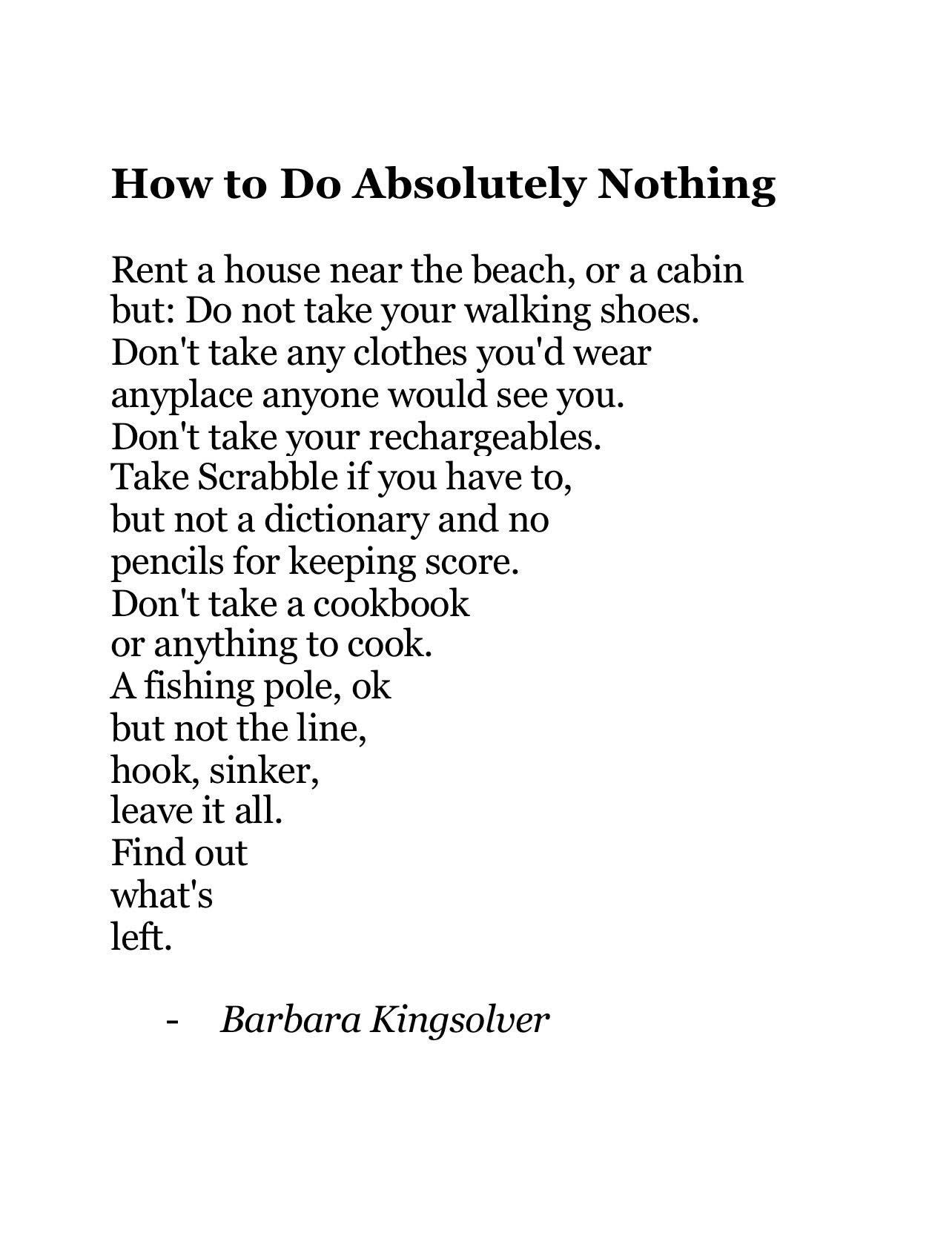There is a poem I sometimes share on social media which always ends up becoming a fascinating social experiment.
It’s called How to Do Absolutely Nothing by Barbara Kingsolver and if you haven’t read it yet, I am sharing it below.
The response to this poem is opposite ends of the spectrum. Some people say it sounds like a dream come true and some say that it sounds like their worst nightmare. Personally, I understand both because I have been both people. I used to think the idea of being completely alone, with nothing to do, no sketchbook, no games, no books, no phone, no internet and no company would leave me entirely alone with my thoughts and to be left alone with my thoughts is like being closed up in a dark room as a child while a pair of bright red eyes stare at you from a far corner of that room.
But then one day, I got trapped in an elevator. For three hours. At 2% battery when I went in, no power bank and no book with me as it was supposed to be a quick trip down to sign for a parcel that had been delivered. After calling my friend to let them know I was stuck and asking them to let the maintenance team know, I watched the phone battery tick down to 1%. And then, my battery died. And I was stuck with nothing to do. The first half an hour passed at a snail’s pace, I felt fortunate that I was carrying a watch because I would have no idea what the time was. Once the initial wave of panic at being trapped in such a small space had somewhat passed, I leaned my head back against the elevator wall, making peace with the fact that all I could do was wait. I had no idea if my friend had been able to get a hold of the maintenance team or what they had said. Which meant being all alone with my thoughts for the foreseeable future.
This was when I noticed it. The amount of work I was putting in passively to avoid my thoughts. Every time an unpleasant memory would worm its way into my consciousness, I would find a way to circumvent it with something else. Any thought that would make me even remotely uncomfortable would be immediately replaced with something that brought me relief. It was then that I realised that I had been relying on coping mechanisms which prevented me from reflecting on anything that caused discomfort. Rilke, one of my favourite poets once said “Let everything happen to you: beauty and terror. Just keep going. No feeling is final.” By refusing to allow myself to feel any terror or any negative emotion at all, I was only holding space for the beauty of the world, and a mind that is unable to fully process terror in any form is an unexercised mind, it is an unprepared mind. What good is it to be an artist if the art you make alienates such a huge part of the human experience?
So instead, I tried something dangerous.
Keep reading with a 7-day free trial
Subscribe to How to Survive An Existential Crisis to keep reading this post and get 7 days of free access to the full post archives.






